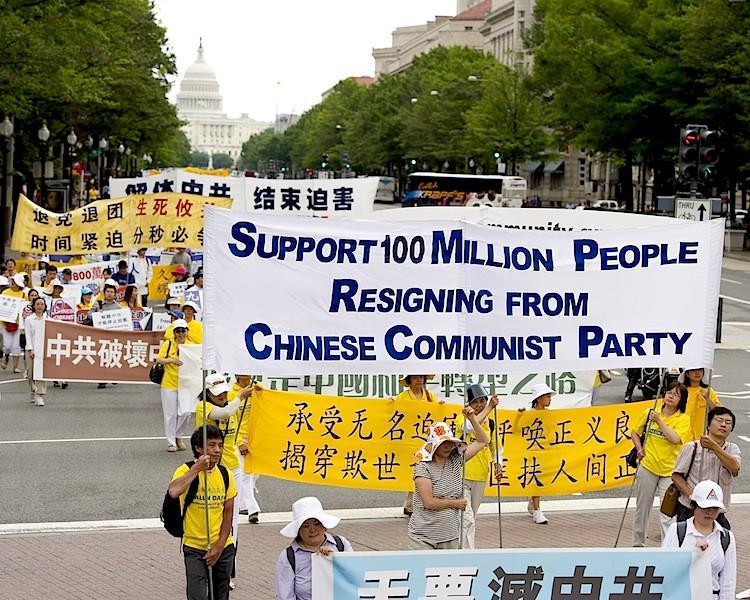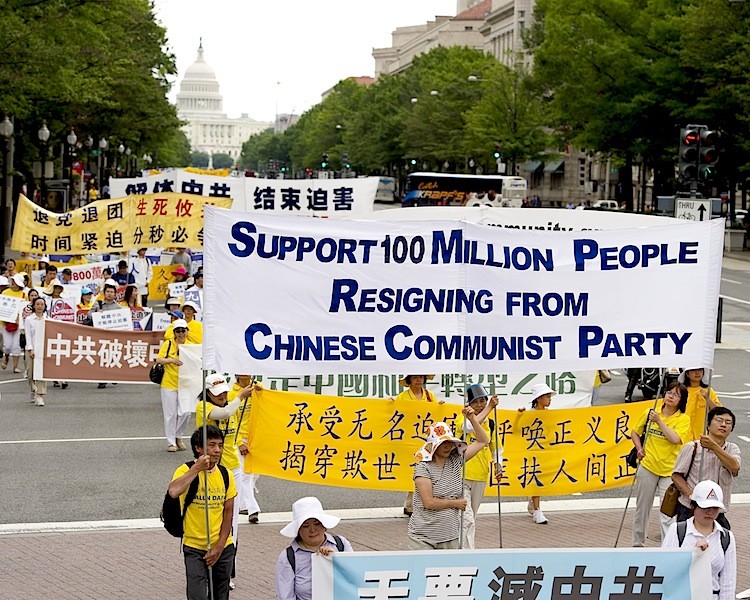When poorly constructed elementary school buildings collapsed in Wenchuan, China, after a massive earthquake in 2008, parents wanted answers. Rather than launching an investigation or tallying the student deaths, however, agents of the Chinese Communist Party (CCP) infiltrated the parent groups, broke them up, arrested the recalcitrants, and jailed a man trying to help them.
A similar dynamic happened after the poisoned milk powder scandal broke in 2008. The man who lobbied on behalf of the parents, and whose child was also a victim, ended up in jail.
Meanwhile, millions of peaceful Chinese citizens are monitored, arrested, and tortured to death, because the CCP considers their religious beliefs to be a threat to its rule.
The Chinese regime also crushes all attempts by anyone organizing politically—hence hopes for a future China without these depredations seem bleak.
Enter “Tuidang,” meaning, “Renounce the Party.”






